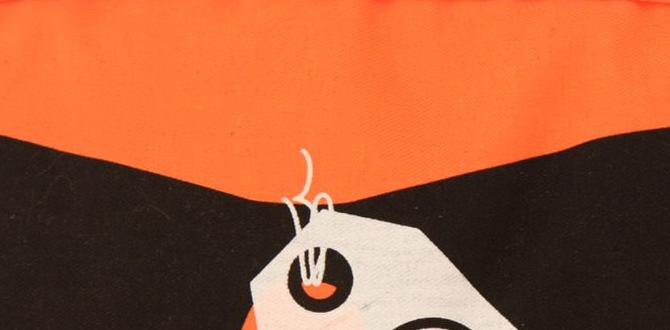Navigating Beirut safely involves being aware of common scams and cultural mistakes. By staying informed and cautious, you can enjoy the vibrant city and its rich heritage without falling victim to tourist traps or unintentionally causing offense. This guide provides practical tips to ensure a smooth and secure trip, covering everything from financial pitfalls to cultural faux pas for a confident travel experience.
Welcome to Beirut, a city that pulses with life, history, and incredible culture! As a seasoned traveler, I know that exploring new places is exciting, but a little preparation goes a long way in making your journey smooth and enjoyable. Sometimes, the most frustrating travel hiccups aren’t big disasters, but little scams or simple mistakes that catch us off guard.
This guide at Journey Essentials is here to help you avoid those moments in Beirut. We’ll walk through common pitfalls and give you easy-to-follow advice so you can focus on soaking up all the amazing experiences this Lebanese capital has to offer. Get ready to travel with confidence!
Understanding Beirut: A Blend of Old and New
Beirut is a city of contrasts, where ancient history meets modern dynamism. Its resilience and beauty have captivated travelers for centuries. However, like any bustling metropolis, it’s wise to be prepared for certain situations. Understanding the local context is the first step to a safe and rewarding visit. This city offers incredible food, stunning architecture, and warm hospitality, and with a little knowledge, you can fully immerse yourself in its charm.
Why Knowing About Scams and Mistakes Matters
Being aware of potential scams helps protect your hard-earned money and ensures you have a positive experience. Tourist-oriented scams are designed to exploit visitors who are unfamiliar with local prices or customs. Similarly, understanding cultural etiquette prevents accidental missteps that could lead to awkward situations or misunderstandings. It’s all about responsible travel, allowing you to explore freely and safely.
Essential Scam Avoidance in Beirut
Let’s dive into some common scams travelers might encounter and how to steer clear of them. These are often subtle and rely on people being a bit overwhelmed or trusting.
Taxi and Transportation Scams
Taxis are a convenient way to get around, but they can also be a source of scams if you’re not careful.
The “Broken” Meter: Always confirm the taxi has a working meter before you get in. If the driver claims it’s broken, insists on a fixed price, or seems reluctant to use it, it’s a red flag.
The “Long Way Around”: Drivers might take unnecessarily long routes to inflate the fare. A quick look at a mapping app on your phone (like Google Maps) can help you gauge the most direct route.
Pre-Trip Price Negotiation: If you do agree on a price, confirm it clearly in Lebanese Pounds (LBP) or US Dollars specified beforehand. Be aware of the current exchange rate to avoid being overcharged.
Ridesharing Apps: Consider using ridesharing apps like Bolt or Uber (availability can fluctuate). These often provide upfront pricing and a clear route, reducing the chance of meter-related issues.
Shopping and Market Pitfalls
Beirut’s souks and markets are a delight, but some vendors might try to take advantage of tourists.
Overpriced Souvenirs: Prices in tourist areas can be significantly higher. Don’t be afraid to politely decline or walk away if a price seems unreasonable. Haggling is expected in many places, but keep it respectful.
“Fake” Authentic Goods: Be wary of merchants claiming items are rare antiques or high-end crafts at suspiciously low prices. Do your research if you’re looking for specific items.
Hidden Fees: For more significant purchases, ensure all costs are clearly stated before you agree to buy. This includes any potential taxes or delivery fees.
A good rule of thumb when shopping is to compare prices at a few different stalls before making a purchase, especially for items you’re unfamiliar with.
Money and ATM Scams
While less common, it’s always good to be aware of potential financial trickery.
ATM Skimming: While rare, be cautious when using ATMs, especially those in less secure locations. Ensure the card slot looks normal and cover your PIN. It’s best to use ATMs attached to reputable banks.
Currency Exchange Rip-offs: Only exchange money at official banks or reputable exchange bureaus. Avoid street vendors offering exchange services, as they may provide a poor rate or even counterfeit currency.
“Helpful” Strangers at ATMs: Be wary of people offering unsolicited help at ATMs. They might try to distract you to see your PIN or swap your card.
Restaurant and Bar Tricks
Enjoying Beirut’s culinary scene is a must, but watch out for these common restaurant scams.
Menu Price Discrepancies: Always check the prices on the menu. Sometimes, the bill might have slightly different figures.
“Complimentary” Items: Be mindful of items brought to your table that you didn’t order, such as bread or olives. While often complimentary, in some establishments, they might be added to your bill. Politely send back anything you didn’t request if you’re unsure.
Overcharging for Drinks: Alcoholic beverages, especially imported ones, can be expensive. Ensure you know the price of your drinks before ordering.
The “Friendly” Local Approach
This is a classic scam that relies on building trust.
The Distraction: Someone may approach you with a story – perhaps they need help finding someone, or they want to show you a “special” place. They might then try to take you to a specific shop or restaurant where they receive a commission, or they might attempt a pickpocketing while you’re distracted.
The “Too Good to Be True” Offer: Be skeptical of unsolicited offers for tours, guides, or “unforgettable” experiences at a very low price. Always use reputable tour operators or book through your hotel.
If someone seems overly friendly and their agenda isn’t clear, it’s polite to thank them and move on. Trust your gut feeling.
Avoiding Common Mistakes and Cultural Misunderstandings
Beyond outright scams, making unintentional cultural mistakes can lead to awkward moments. Here’s how to navigate social norms with grace.
Dress Code and Modesty
Lebanon is generally more liberal than many Middle Eastern countries, but it’s still important to be mindful of local customs, especially outside of trendy Beirut districts or when visiting religious sites.
General Sightseeing: For everyday exploration of the city, modest but comfortable clothing is recommended. Think t-shirts, blouses, and trousers or skirts that cover the knees.
Religious Sites: When visiting mosques or churches, women should cover their heads, shoulders, and knees. Men should also ensure they are not wearing shorts. Many religious sites provide headscarves and cover-ups if needed.
Beach/Pool Areas: Swimwear is perfectly acceptable at beaches and hotel pools.
It’s always better to err on the side of dressing slightly more conservatively if you’re unsure. This shows respect for the local culture.
Photography Etiquette
Beirut is incredibly photogenic, but always be respectful when taking photos.
People: Always ask for permission before taking close-up photos of individuals, especially women and children. Some people may decline, and it’s important to respect their wishes.
Military/Government Buildings: Never photograph sensitive areas such as military installations, government buildings, or border areas. This is a serious offense.
Bustling Areas: When photographing crowded streets or markets, be mindful of others and avoid being intrusive.
Alcohol Consumption
Alcohol is available and widely consumed in Beirut, particularly in bars, restaurants, and private homes.
Public Intoxication: While acceptable in many venues, public displays of intoxication are frowned upon. Always drink responsibly.
Ramadan: During the holy month of Ramadan, it’s advisable for non-Muslims to be extra mindful. Eating, drinking, or smoking in public during fasting hours is considered disrespectful in the presence of those observing the fast. Many restaurants also close during the day or have limited hours.
Respect for Elders and Social Customs
Lebanese culture places a high value on respect for elders and hospitality.
Greetings: A handshake is a common greeting. For elders or more formal introductions, a slight bow of the head or a kiss on each cheek might be appropriate, but follow the lead of the person you’re meeting.
Invitations: If invited into someone’s home, it’s a sign of great hospitality. Bring a small gift, like pastries or sweets, if you can. Always accept food or drink offered, even if it’s just a small amount, as refusing can be seen as ungracious.
Using Your Right Hand: When offering or receiving items, particularly food, it’s customary to use your right hand, as the left hand is traditionally considered unclean.
Language and Communication
While many Lebanese speak English or French, learning a few basic Arabic phrases can go a long way.
Basic Phrases: “Shukran” (thank you), “Min fadlak” (please), “Marhaba” (hello), and “La” (no) are incredibly useful and appreciated.
Patience: Communication can sometimes involve gestures and patience. Don’t be afraid to use a translation app if needed.
Practical Safety Tips for Beirut
Beyond scams and cultural nuances, general safety practices are always important.
Personal Safety
Be Aware of Your Surroundings: This is crucial in any city. Pay attention to who is around you, especially in crowded areas.
Guard Your Valuables: Keep your passport, money, and phone secure. Use a money belt or a secure inner pocket for important documents. Don’t flash large amounts of cash.
Walk Confidently: Projecting confidence can deter potential opportunists. Stick to well-lit and populated areas, especially at night.
Travel Insurance: Always have comprehensive travel insurance. This can cover unexpected medical expenses, lost luggage, or trip cancellations. Check out this guide on choosing travel insurance from Consumer Financial Protection Bureau.
Transportation Safety
Pre-Book Airport Transfers: To avoid taxi scams upon arrival, it’s often best to pre-book an airport transfer through your hotel or a reputable transfer service.
Secure Your Luggage: When using public transport or reputable taxis, ensure your luggage is stored securely.
Health and Well-being
Stay Hydrated: Beirut can be warm, especially in the summer. Drink plenty of bottled water.
Food Safety: Eat at reputable restaurants and street food stalls that look clean and busy. When in doubt, the World Health Organization provides excellent tips on food safety: WHO Food Safety Advice.
Diapering Needs: For families traveling with young children, having a reliable supply of child diapers is essential for comfort and hygiene on the go. Similarly, adults who require adult diapers can ensure a stress-free journey by packing adequate supplies. Consider brands known for absorbency and comfort for travel, like those offering discreet options.
Navigating Financial Transactions
Understanding the local currency and payment methods is key.
Currency
The official currency is the Lebanese Pound (LBP). However, US Dollars are widely accepted throughout Beirut, particularly for larger purchases and in tourist-oriented establishments. It’s useful to understand the current exchange rate. Websites like XE.com can provide real-time rates.
Payment Methods
Cash is King: For smaller purchases, markets, and many local restaurants, cash (LBP or USD) is often preferred.
Credit Cards: Many hotels, larger restaurants, and shops accept credit cards, but it’s always wise to ask beforehand and to have some cash on hand as a backup.
Negotiation: Be prepared to negotiate prices in markets and for services like taxis if a meter isn’t used. Always clarify the currency (LBP or USD) you are agreeing upon.
Comparison Table: Scam vs. Mistake
To help differentiate, consider this table:
| Scam | Mistake |
|---|---|
| Intentional deception to gain financially. | Unintentional faux pas due to lack of knowledge. |
| Example: A driver deliberately taking a long route to overcharge. | Example: Accidentally photographing a restricted area without knowing. |
| Requires vigilance and awareness of common tourist traps. | Requires learning local customs and etiquette beforehand. |
| Can lead to financial loss and feeling exploited. | Can lead to embarrassment or minor social awkwardness. |
Recognizing the difference helps you tailor your approach to preparedness. Scams require alertness, while mistakes can be avoided with research and sensitivity.
Resources for a Safer Trip
Beyond this guide, here are a few authoritative resources to help you prepare:
U.S. Department of State – Lebanon Travel Advisory: For comprehensive, up-to-date safety and security information from a governmental perspective, consult the U.S. Department of State’s travel advisories: U.S. State Department Lebanon.
UK Government Foreign Travel Advice for Lebanon: Similar to the U.S. advisory, the UK government offers valuable insights: UK Foreign Office Lebanon.
These resources provide official guidance on current conditions, visa requirements, and emergency contact information, which are vital for any international traveler.
Conclusion
Beirut is a captivating city that truly rewards the prepared traveler. By familiarizing yourself with potential scams and understanding local customs, you’re not just protecting yourself; you’re setting the stage for a richer, more authentic experience. Remember to stay aware, trust your intuition, and embrace the incredible culture and beauty of Lebanon.
From navigating transportation with a watchful eye to respecting local traditions and ensuring your personal comfort with essentials like travel-friendly hygiene products, every step you take towards preparedness enhances your journey. Beirut offers a vibrant tapestry of experiences, and with these tips from Journey Essentials, you’re well-equipped to explore it with confidence, safety, and a sense of adventure. Safe travels, and enjoy the magic of Beirut!
Frequently Asked Questions
Q1: Is Beirut safe to visit for solo female travelers?
A1: Many solo female travelers find Beirut to be a welcoming city. While general safety precautions apply, being aware of your surroundings and dressing modestly in certain areas can enhance your comfort. Relying on reputable transportation and avoiding isolated areas at night are good practices.
Q2: What is the best way to handle currency in Beirut?
A2: It’s advisable to carry a mix of Lebanese Pounds (LBP) and US Dollars (USD) in small denominations. While USD is widely accepted, using LBP can sometimes get you better prices. Exchange money at official banks or reputable exchange bureaus.
Q3: Should I be worried about pickpocketing in Beirut?
A3: Like any busy city, pickpocketing can occur, especially in crowded markets or tourist spots. Keep your valuables secure, use a money belt, and be aware of your surroundings to minimize risk.
Q4: What if I encounter an emergency in Beirut?
A4: For emergencies, you can call the emergency services. It’s also wise to have the contact details for your country’s embassy or consulate readily available. Your hotel can also assist in emergencies.
Q5: Is it safe to drink tap water in Beirut?
A5: It is generally recommended to drink bottled water in Beirut. Tap water is not usually considered safe for consumption by international visitors. Ensure that any ice in your drinks is also made from purified water.
Q6: How should I dress to respect local customs?
A6: Aim for modest clothing. For men and women, this means covering shoulders and knees when out and about. When visiting religious sites, more conservative dress is required, often including covering the head for women.
Q7: Are public transportation options in Beirut safe and reliable?
A7: Public transport like taxis and shared taxis (service taxis) are common. For safety and clarity, ridesharing apps like Bolt are increasingly popular and often preferred for their fixed pricing and route tracking. Always agree on a fare with traditional taxis before starting your journey if a meter isn’t used.




